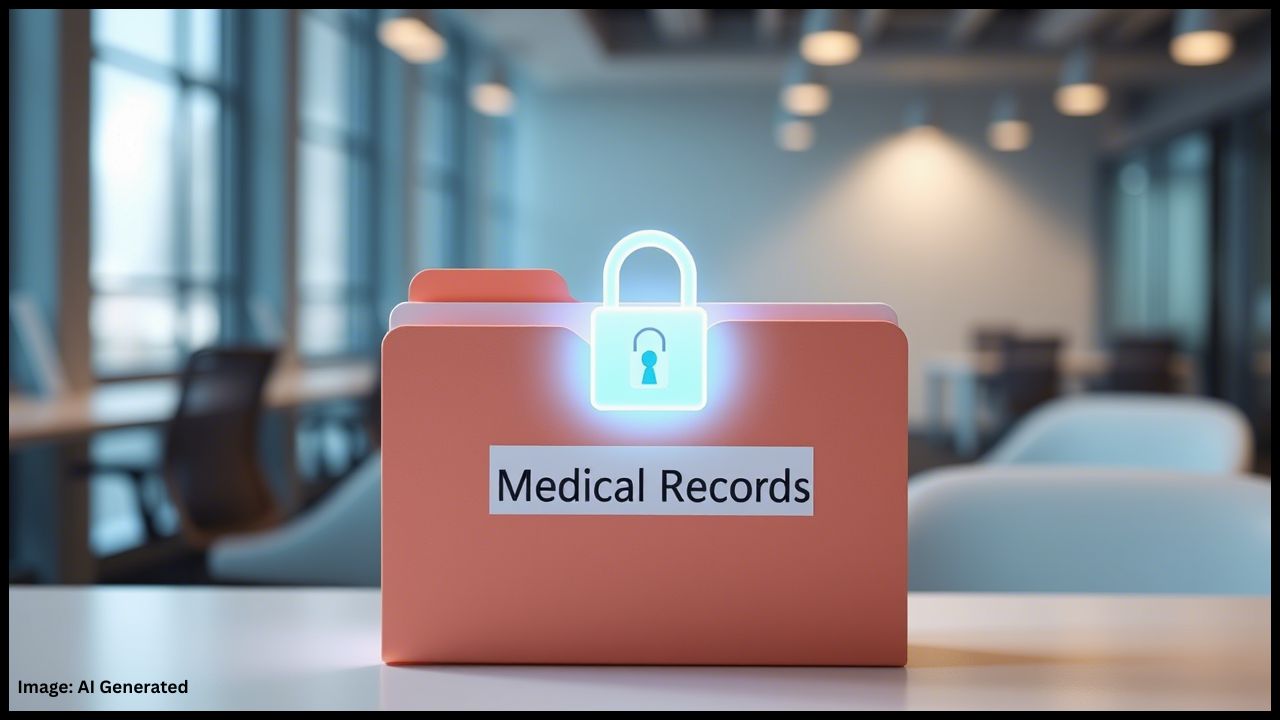In 2025, your medical records are the next goldmine for cybercriminals — a reality that’s becoming increasingly clear as healthcare data breaches grow in both frequency and impact. Unlike credit card information or passwords, medical records contain a detailed profile of your identity, financial information, and health history, making them extremely valuable and dangerous if stolen.
This article explains why medical records are prime targets, explores recent breaches and trends, and provides actionable advice to help you protect your sensitive health data. Whether you’re a patient, healthcare professional, or security enthusiast, this comprehensive guide will help you understand the risks and solutions surrounding medical data security.
Quick Summary
- Medical records can fetch up to $1,000 or more per record on the dark web—far higher than other personal data.
- Over 5 million patient records were exposed in major healthcare breaches in early 2025 alone.
- Cybercriminals use stolen records for identity theft, insurance fraud, prescription forgery, and black-market sales.
- Laws like HIPAA and GDPR regulate healthcare data protection but challenges remain due to complex networks and outdated tech.
- Patients can protect themselves through strong passwords, two-factor authentication, careful monitoring, and cybersecurity awareness.
- For official healthcare data security updates, visit the HIPAA Journal at www.hipaajournal.com.
The Growing Value of Medical Records for Cybercriminals
Medical records are a rich source of personal data, making them highly sought after on the dark web. They contain a mix of identity, financial, and health information, such as:
- Full name and address
- Social Security number
- Date of birth
- Health history and diagnoses
- Insurance policy numbers
- Prescription details
This depth of information allows criminals to create long-term, hard-to-detect fraud schemes. Unlike a stolen credit card number that can be quickly canceled, medical identity theft can haunt victims for years, leading to wrongful medical treatments and huge financial losses.
According to cybersecurity experts, a single stolen medical record can sell for 50 times more than a credit card record, sometimes exceeding $1,000 on underground markets.
Medical Records Are the Next Goldmine for Cybercriminals: How Cybercriminals Exploit Stolen Medical Records?
The uses of stolen healthcare data by cybercriminals are varied and harmful:
1. Identity Theft and Medical Fraud
Fraudsters impersonate victims to receive medical care or prescription drugs. This can result in incorrect medical records, which might cause serious health risks later.
2. Insurance Fraud
Criminals submit fake claims using stolen identities, inflating healthcare costs and premiums for everyone.
3. Prescription Forgery
Stolen data helps criminals obtain controlled substances illegally, contributing to public health crises.
4. Data Sales on the Dark Web
Medical records are sold repeatedly to multiple criminals, multiplying the damage done to victims.
A Look at Recent Healthcare Data Breaches in 2025
The healthcare sector is under attack more than ever. In the first half of 2025 alone:
- The Ascension Health breach compromised over 430,000 patient records, including sensitive personal and medical data.
- The Yale New Haven Health breach exposed data for approximately 5.6 million patients, affecting several states.
According to the U.S. Department of Health and Human Services (HHS), the number of healthcare data breaches continues to climb each year, with hacking and IT failures being the top causes.
| Year | Number of Reported Breaches | Patient Records Exposed (Millions) |
|---|---|---|
| 2022 | 580 | 40 |
| 2023 | 620 | 45 |
| 2024 | 700 | 50 |
| 2025* | 400 (first half) | 25+ |
*Data for 2025 is partial but shows a rising trend.
Challenges in Healthcare Cybersecurity
Complex and Interconnected Systems
Healthcare data flows between hospitals, labs, insurance companies, and patients, increasing vulnerability points.
Legacy Infrastructure
Many providers rely on outdated technology that lacks robust security features.
Human Factor
Staff members often lack cybersecurity training, increasing risks from phishing or accidental data leaks.
Regulatory Compliance
Healthcare organizations must follow laws like HIPAA in the US and GDPR in Europe that regulate how data must be protected. However, meeting these standards can be costly and complicated.
Emerging Solutions for Protecting Medical Data
The future of healthcare cybersecurity includes innovative technologies such as:
- Blockchain: Provides secure, tamper-proof records with decentralized control.
- AI and Machine Learning: Detects unusual access patterns and alerts security teams to potential breaches.
- Advanced Encryption: Protects data at rest and in transit, making stolen data unusable.
Healthcare providers are increasingly adopting these technologies, but patients also play a critical role in data security.
Medical Records Are the Next Goldmine for Cybercriminals: How Patients Can Protect Their Medical Records?
You don’t have to be helpless in the face of rising cyber threats. Here are practical steps to secure your medical information:
1. Use Strong Passwords
Create unique, complex passwords for all online health accounts. Avoid using the same password across multiple sites.
2. Enable Two-Factor Authentication (2FA)
Add a second layer of protection to your accounts by using 2FA whenever possible.
3. Monitor Your Medical and Insurance Statements
Regularly check for unfamiliar charges or services you didn’t receive.
4. Beware of Phishing
Be skeptical of unsolicited emails or calls asking for your medical information. Verify the identity of the requester.
5. Keep Software Updated
Ensure your devices and apps are updated with the latest security patches.
Overall Summary
Your medical records are a goldmine for cybercriminals because they contain comprehensive and valuable personal information. As cyberattacks targeting healthcare grow, both providers and patients must prioritize cybersecurity.
Healthcare organizations face complex challenges but are adopting new technologies to safeguard data. Meanwhile, patients should take proactive steps like using strong passwords and monitoring their medical records closely.
Protecting your medical data is essential for maintaining your privacy, health, and financial security in 2025 and beyond.
Read More
How Hackers Can Use Wearables to Breach Corporate Networks
FAQs on Medical Records Are the Next Goldmine for Cybercriminals
How can I tell if my medical records have been hacked?
Healthcare providers are required to notify you of breaches. Watch for unusual billing or medical records errors, and monitor your credit reports.
What legal protections do I have for my medical data?
In the US, the Health Insurance Portability and Accountability Act (HIPAA) protects your data. The General Data Protection Regulation (GDPR) covers EU citizens.
Can stolen medical data cause harm beyond financial loss?
Yes. It can lead to wrong medical treatments or delays in care if your records are altered fraudulently.
Should I limit sharing my medical data online?
Only share your medical information with trusted providers and use secure portals whenever possible.









No Comments Yet
Be the first to share your thoughts.
Leave a Comment